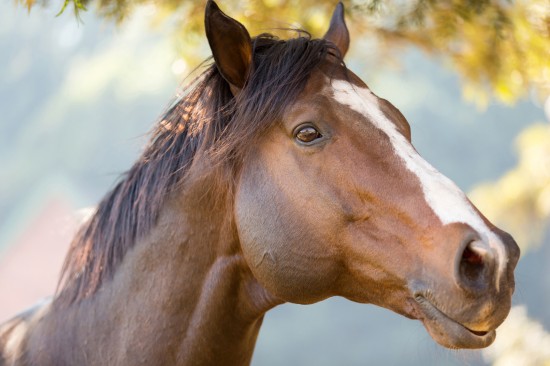

Buying a new pedigree puppy requires a large investment of time, money and research in order to get things right, and ensure that you buy a healthy, viable puppy that is a good fit for you and your family. Once you have decided what breed or type of puppy you wish to buy, the hard work really begins! Even between pedigree puppies of the same breed, there is a vast amount of variation between the standard of puppies available, and the way that the breeder in question manages the breeding process, the raising of the puppies and the ongoing improvement of their breed lines.
Even if you are not concerned about owning a show quality puppy and are simply looking for an appealing family pet, you will of course wish to ensure that you start off on the right foot, with a puppy that has been thoughtfully chosen, bred for health and temperament, and responsibly cared for before you take them home.
Here is a list of the most important questions to ask the breeder of any puppy you might be considering buying.
Some pedigree dog breeds are more prone than others to a range of genetically inherited health conditions, many of which can be tested for prior to breeding. It is wise to find out if the breed of puppy you are considering is particularly prone to any inherited problems- such as hip dysplasia or eye problems- and find out if the breeder in question tests their parent dogs and/or the puppies, in order to minimise the chances of passing problems of these types on down the line.
While young puppies under 12 weeks old will not generally have begun any training or be expected to understand training commands, nevertheless, the first 12 weeks of life are a very formative stage in the young dog’s life, and the competent and experienced breeder will have spent this time wisely when raising the puppies.
The puppies should be used to the presence of people, being handled and picked up, and should have been exposed to normal household sounds, comings and goings and other day to day occurrences. The personalities and temperaments of the puppies will begin to manifest themselves at this stage as well, and the knowledgeable breeder will be able to comment on and discuss the personality and temperament that each puppy is beginning to display with any potential buyer.
Responsible breeders should breed their dogs for a continual programme of ongoing improvement, and aim to raise the standard and quality of their breed lines with each subsequent litter. Your breeder should be able to paint a clear picture of what this involves and what they are aiming to achieve with their own dogs, plus be able to tell you if they breed with an eye for showing, companion dogs, working stock, or something else.
Not being able to view the dam of the puppies should be an automatic warning sign for the potential puppy buyer, but if possible, ask if you can view the sire as well. This may not be possible in all cases, for instance if the breeder used a stud dog, but being able to view and interact with the sire of your potential puppy is a good sign when trying to select a breeder.
Most dog breeders will offer a formal contract of sale for their puppies, which should outline in detail what you can expect from the breeder if anything goes wrong or the puppies are found to be in poor health. However, some breeders will also place caveats on the sale of their dogs, such as whether they have to be spayed or neutered, or even if you can use them for showing. Find this out during the early stages, to avoid disappointment later on.
Finding out what the puppies have been eating is a question to ask when you are almost ready to make an offer on a puppy, and is important to ensure that you can manage the transition between the puppy living with the breeder and living in your own home as smoothly as possible.
Once the puppies are eight weeks old, they should receive the first of their two-stage vaccinations, and should receive flea and worming checks and treatment. If this has not been done, the chances are that your breeder is lax in other areas as well, so look elsewhere. Remember to check any paperwork to verify vaccinations, and to take these with you when you take the puppy.
If your breeder is professional or semi-professional rather than simply breeding one litter for their personal enjoyment, you should be able to get some references from previous buyers of their puppies. You may even be allowed to go and visit the puppy or adult dog in its new home if the previous buyer is amenable to this, and have a proper chat about how they feel the sale went and if their dog was everything they were led to expect it would be.
Finally, buying a pedigree puppy is a large investment, not only in terms of money but in emotional terms as well. It is wise to have a vet of your own choosing examine your potential puppy prior to signing a sale contract, to give you peace of mind and potentially flag any problems that may arise later on down the line. This is something that you will have to pay for, and will generally have to be done at the breeder’s convenience, but if your breeder refuses to let you do this or insists on a vet of their own choosing, look elsewhere.
 Keeping Dogs Happy & Healthy Through The Winter Months
Keeping Dogs Happ
Keeping Dogs Happy & Healthy Through The Winter Months
Keeping Dogs Happ
 Tips For Introducing A New Rescue Cat To The Household
Tips For Introduc
Tips For Introducing A New Rescue Cat To The Household
Tips For Introduc
 Has Your Horse Got A Hearing Problem?
Has Your Horse Go
Has Your Horse Got A Hearing Problem?
Has Your Horse Go
 Bullmastiff And Common Eye Issues
Bullmastiff And C
Bullmastiff And Common Eye Issues
Bullmastiff And C
 The Personality Of The Siamese Cat
The Personality O
The Personality Of The Siamese Cat
The Personality O
Copyright © 2005-2016 Pet Information All Rights Reserved
Contact us: www162date@outlook.com